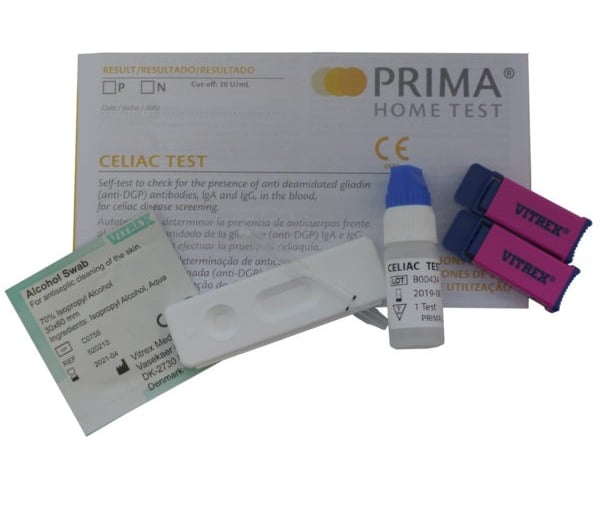Celiac Disease
7/27/20231 min read
What is Celiac Disease?
Celiac disease (or Coeliac) is an autoimmune disorder that damages the small intestine when gluten is ingested. Gluten is a protein found in wheat, barley, and rye.
When people with celiac (Coeliac) disease eat gluten, their immune system responds by attacking the villi, which are small finger-like projections that line the small intestine. This damage to the villi can prevent the body from absorbing nutrients properly.
Symptoms of Celiac Disease
The symptoms of celiac disease can vary from person to person and can range from mild to severe. Some common symptoms include:
Diarrhoea
Weight loss
Fatigue
Bloating
Abdominal pain
Constipation
Anaemia
Numbness or tingling in the hands or feet
Depression
Infertility
If you feel that you suffer from any of these symptoms you can test yourself using one of our Celiac test kits.
Diagnosing Celiac Disease
There are several tests that can be used to diagnose celiac disease. The most common tests are:
Blood tests: These tests measure the levels of antibodies that are produced in response to gluten.
Endoscopy: This procedure involves inserting a small camera into the small intestine to look for damage to the villi.
Biopsy: A small sample of tissue is taken from the small intestine during an endoscopy and examined under a microscope.
Treatment for Celiac Disease
The only treatment for celiac disease is a gluten-free diet. A gluten-free diet means that you must avoid all foods that contain gluten. This can be challenging, but there are many gluten-free products available on the market.
Living with Celiac Disease
Living with celiac disease can be challenging, but it is possible to live a healthy and fulfilling life. With a gluten-free diet, most people with celiac disease can feel better and have fewer symptoms.
Subscribe to our newsletter
SeraDiag, 128 City Road, London, EC1V 2NX


